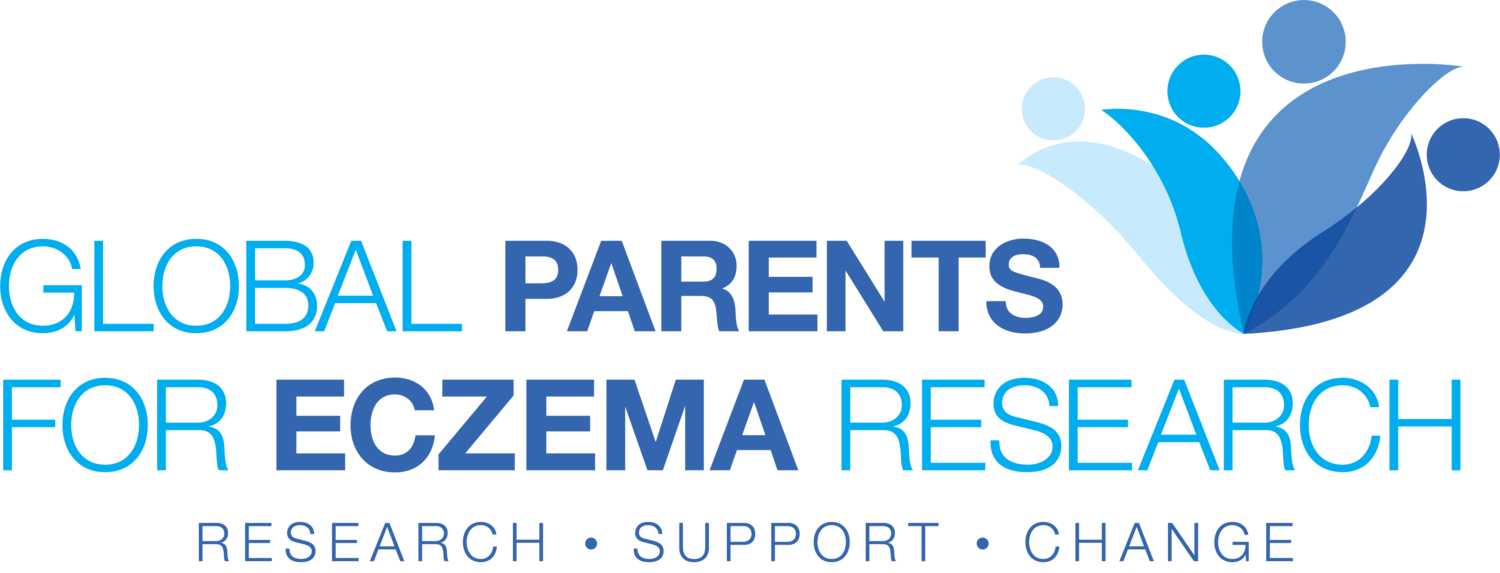2025 Childhood Eczema Prevention Grants
GPER supports innovative research into the primary and secondary prevention of AD in childhood.
Childhood Eczema Prevention Research Grant 2025
Overview
The prevalence of atopic dermatitis (AD or “eczema”) is high and increasing globally, affecting up to 20% of children worldwide. Research into the causes of AD – and how to prevent it – is needed to avert future suffering.
Global Parents for Eczema Research (GPER) is a 501c3 nonprofit founded and led by parents of children with AD. A strategic focus for GPER is preventing childhood AD.
To that end, GPER is supporting targeted clinical research studies focused on preventing pediatric AD with this “Childhood Eczema Prevention Grant”.
This Prevention Grant is intended to advance knowledge related to primary and secondary prevention of AD in childhood. Primary prevention studies will focus on strategies for avoiding disease entirely before AD ever occurs. Secondary prevention studies will focus on screening children for early signs and treatment to resolve AD and stop further progression.
GPER seeks to fund high quality scientific research that, upon completion, will be publishable in peer-reviewed journals and clinically applicable. GPER is particularly interested in funding proposals that address one or more of the following topics:
Gut microbiome modulation during the perinatal period.
Early intervention with topical therapy.
Avoidance and mitigation of environmental and lifestyle exposures that may predispose children to AD.
Priority will be given to proposals that focus on clinical or translational research that has implications for AD prevention in the near term, and that includes a patient-centered approach.
Proposals that include basic research will be accepted, however, they should demonstrate strong clinical relevance.
Number of Awards
Up to three (3) Prevention Grants for USD$50,000 each are available for the 2025 funding cycle. This is a one‐year non‐renewable grant.
Eligibility
GPER is interested in funding Principal Investigators at different stages of their career, including research doctorates, PhD students, post-docs, residents, and fellows with supervisory approval/faculty mentorship. Both individual investigators and groups consisting of multiple investigators from different institutions are eligible to apply.
While GPER is based in the United States, applications from investigators and institutions outside of the United States are encouraged.
To ensure that studies are relevant to patients and families, research teams are encouraged to incorporate input from individuals with lived experience with AD.
Budget
Applicants may request up to $50,000 (USD; direct costs only). While indirect costs are not allowed, support for salary and fringe benefits is permissible. Staff salary support should be reflective of the effort dedicated to the project and an explanation of this expense should be included in the budget justification. PI salary support should align with the current allowable NIH salary cap.
How to apply
Submit a one-page Letter of Intent (LOI) as a Word or PDF file to grants@gper.org by May 8th, 2025.
The letter of intent should include:
Title and brief description of the proposal (Maximum 500 words)
Brief description should include research plan and name(s) and credentials of all investigators on the team: PI(s), co-I(s), consultants, consumers, and mentors (as applicable)
Supervisory and mentor letter of support, if applicable
GPER will assess the LOIs and send an email indicating whether a full grant application is invited or not by May 30th, 2025.
Applicants who receive an invitation to submit a full proposal will be emailed the application. Completed applications must be consolidated into a single Word or PDF file and emailed to grants@gper.org. Additionally, a cover letter (up to 2 pages) may accompany the application.
Important Dates
Letter of Intent Due: May 8th, 2025
Full Application deadline: 5:00PM PDT, July 1st, 2025
Awards Announced by: September 1st, 2025
Earliest Start Date: November 1st, 2025
Questions
Email grants@gper.org with questions about the grant, the application, or review process.
About Global Parents for Eczema Research
Global Parents for Eczema Research (GPER) is a grassroots, parent-led non-profit organization that advances research and policy changes that lead to better treatments and prevention strategies for moderate to severe eczema in children. We also help patients and families with peer support and access to the latest and very best scientific information.
Our vision is a future without childhood eczema and our mission is to end the suffering of children with eczema through breakthroughs in research and family support
2024 Childhood Eczema Prevention Grant Recipients
Research Project: Investigating the association between dietary fat intake and skin lipidomics in children with and without eczema.
Dr. Venter’s research will explore the role of dietary sphingolipids and fats in shaping skin lipid profiles, with the aim of identifying nutritional interventions that may reduce the risk of AD development. Through innovative techniques such as skin tape stripping and lipidomic analysis, the research will explore the association between diet and skin health in both children with and without eczema, potentially leading to preventative dietary recommendations for at-risk children.
Research Project: Investigating the relationship between gut microbiome maturation and the presence of Staphylococcus aureus (S. aureus) in children with AD.
By focusing on the role of S. aureus as a disruptor of healthy gut microbiome development, this research aims to elucidate potential microbiome-based strategies to prevent AD. This work could lay the groundwork for future therapeutic interventions targeting the gut microbiome in infants at risk of eczema.



